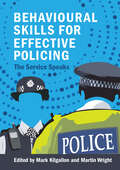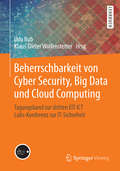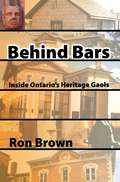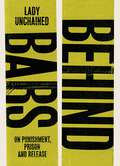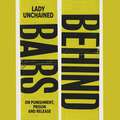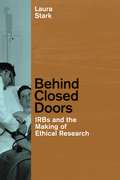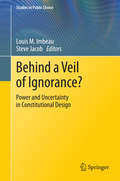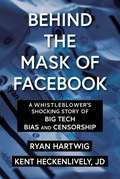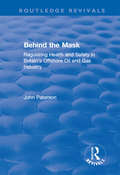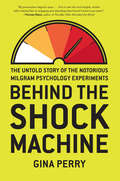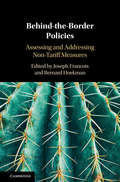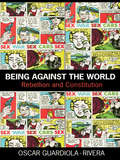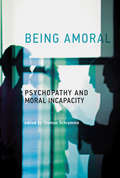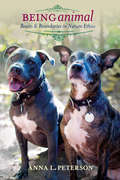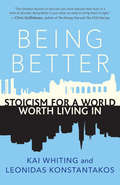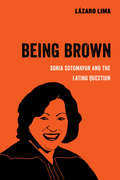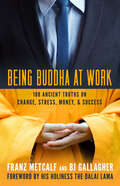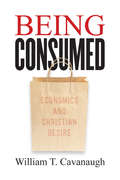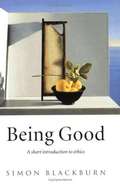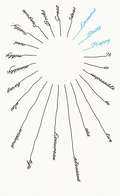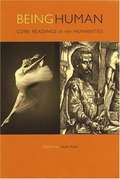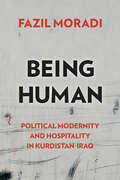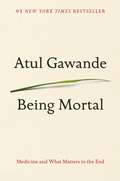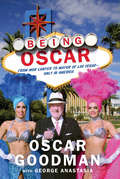- Table View
- List View
Behavioural Skills for Effective Policing: The Service Speaks
by Martin Wright Mark KilgallonBehavioural skills are essential to effective policing practice and professional development, and are also embedded within the policing competency frameworks. As the police service looks to further redefine its role in the twenty-first century, this critical handbook covers the full range of these proficiencies, from building rapport, applying emotional intelligence, building empathy and resilience to diversity and difference, understanding ethics, and developing coaching and leadership skills.Each chapter is written by a distinguished serving or former senior police leader and/or policing scholar, bringing together a wealth of experience and understanding and applying this knowledge in context through key case studies and examples. Suitable for serving police officers at all levels, as well as policing lecturers and students aspiring to join the police, this book encourages and enables a people-centred approach to policing that balances the debate that has given disproportionate credence to transactional skills at the expense of a more transformational approach.
Beherrschbarkeit von Cyber Security, Big Data und Cloud Computing: Tagungsband zur dritten EIT ICT Labs-Konferenz zur IT-Sicherheit
by Klaus-Dieter Wolfenstetter Udo BubCloud Computing, Big Data, Cyber Security, Industrie 4. 0 etc. sind vielleicht nur Schlagworte, aber sie sind auch Ausdruck neuer, komplexer Problemstellungen, deren Behandlung und Beherrschung uns vor große Herausforderungen stellt. Deshalb sind wieder einmal, diesmal auf Einladung der EIT ICT Labs in Berlin, renommierte Sicherheitsexperten und Entscheidungsträger zusammen gekommen, um diese Themen zu diskutieren und beleuchten. Durch die Mitte 2013 bekannt gewordenen umfassenden Ausspähungen von Bürgern und Institutionen hat das Konferenzthema Beherrschbarkeit von Cloud und Co. weiter an Aktualität gewonnen.
Behind Bars: Inside Ontario's Heritage Gaols
by Ron BrownTravel across Ontario and pay a visit to Ontario’s nearly 50 heritage jails. Built before the modern era of the OPP, they range in size from single cell lockups to massive monuments such as the Kingston Pen and the Don Jail. Although Spartan inside, many are architectural wonders on the outside and have been declared heritage buildings. A few have been converted to museums and show the harsh conditions that convicts had to endure. Behind Bars also tells of the many hilarious escapes, gruesome hangings and unusual trials which made Ontario’s old jails the centre of attention. Highlights include ghost-town jails in Silver Islet and Berens River; torture devices on display at the Penitentiary Museum in Kingston, along with the "shower" and the coffin-sized "box"; the man who was executed but didn’t die; mysterious escapes; the battle over Ontario’s smallest jail; Woodstock’s death mask; love stories gone wrong; Ontario’s first terrorist attack; the worst mass murderer; and haunted jails. "Noboby knows Ontario like Ron Brown." - CBC Radio
Behind Bars: On punishment, prison & release
by Lady UnchainedIn 2008, 21-year-old Lady Unchained got involved in a fight in a club while trying to protect her sister.Serving 11 months of her prison sentence, her life changed completely. Inside, Lady Unchained began to write, while battling isolation, loneliness and the fear of being wrongly deported. These notes became powerful bars of poetry, capturing first-hand the broken justice system and the racism rooted within it.Wide-awake poetry, Behind Bars traces how Lady Unchained's identity was irrevocably changed during her sentencing, time in prison and release.Behind Bars proves there is life after prison.
Behind Bars: On punishment, prison & release
by Lady Unchained***** 'So deeply gripping and inspiring...It will stay with me, always.' - Annie MacmanusIn 2008, 21-year-old Lady Unchained got involved in a fight in a club while trying to protect her sister.Serving 11 months of her prison sentence, her life changed completely. Inside, Lady Unchained began to write, while battling isolation, loneliness and the fear of being wrongly deported. These notes became powerful bars of poetry, capturing first-hand the broken justice system and the racism rooted within it.Wide-awake poetry, Behind Bars traces how Lady Unchained's identity was irrevocably changed during her sentencing, time in prison and release.Behind Bars proves there is life after prison.
Behind Bars: On punishment, prison & release
by Lady UnchainedIn 2008, 21-year-old Lady Unchained got involved in a fight in a club while trying to protect her sister.Serving 11 months of her prison sentence, her life changed completely. Inside, Lady Unchained began to write, while battling isolation, loneliness and the fear of being wrongly deported. These notes became powerful bars of poetry, capturing first-hand the broken justice system and the racism rooted within it.Wide-awake poetry, Behind Bars traces how Lady Unchained's identity was irrevocably changed during her sentencing, time in prison and release.Behind Bars proves there is life after prison.This audio edition of the book includes original music to accompany the poems. (p) 2022 Octopus Publishing Group
Behind Closed Doors: IRBs and the Making of Ethical Research
by Laura StarkAlthough the subject of federally mandated Institutional Review Boards (IRBs) has been extensively debated, we actually do not know much about what takes place when they convene. The story of how IRBs work today is a story about their past as well as their present, and Behind Closed Doors is the first book to meld firsthand observations of IRB meetings with the history of how rules for the treatment of human subjects were formalized in the United States in the decades after World War II. Drawing on extensive archival sources, Laura Stark reconstructs the daily lives of scientists, lawyers, administrators, and research subjects working--and "warring"--on the campus of the National Institutes of Health, where they first wrote the rules for the treatment of human subjects. Stark argues that the model of group deliberation that gradually crystallized during this period reflected contemporary legal and medical conceptions of what it meant to be human, what political rights human subjects deserved, and which stakeholders were best suited to decide. She then explains how the historical contingencies that shaped rules for the treatment of human subjects in the postwar era guide decision making today--within hospitals, universities, health departments, and other institutions in the United States and across the globe. Meticulously researched and gracefully argued, Behind Closed Doors will be essential reading for sociologists and historians of science and medicine, as well as policy makers and IRB administrators.
Behind a Veil of Ignorance?: Power and Uncertainty in Constitutional Design (Studies in Public Choice #32)
by Louis M. Imbeau Steve JacobThis volume is a very interesting research project that includes the most careful work on constitutional power and limits to authority of which I am aware. In general, the contributors find that constitutional negotiations normally took place in settings where uncertainty was considerable. They also find that the more detailed the characterization of power relationships, the more liberal and durable the democracy tends to be. Roger D. Congleton This book addresses the issue of the impact of uncertainty in constitutional design. To what extent do constitution drafters and adopters make their decisions behind a veil of ignorance? More fundamentally, can we infer from constitutional texts the degree of uncertainty faced by constitution drafters and adopters? After an introduction (chapter 1), the book proceeds in two parts. The first part (chapters 2 to 4) introduces to the intellectual filiation of the project and to its theoretical and methodological foundations. The second part (chapters 5 to 13) presents nine case studies built on the same structure: historical account of the making of the Constitution, results of the content analysis of the constitutional text, and discussion of specific issues raised in the analysis. Chapter 14 concludes.
Behind the Mask of Facebook: A Whistleblower's Shocking Story of Big Tech Bias and Censorship (Children’s Health Defense)
by Kent Heckenlively Ryan HartwigRyan Hartwig may be one of the most important figures in American history. Hired by Cognizant as a content moderator for Facebook, Ryan Hartwig began by keeping gruesome images of cartel violence in Mexico off the platform. This seemed like a righteous mission and yet, as time went by, it became clear the Facebook bosses saw an even bigger threat, Americans of a different political viewpoint. Ryan watched in horror as Facebook made a monumental shift after the 2016 elections, hiring thousands of US-based content moderators with one mission, to favor leftist viewpoints while suppressing the speech of conservatives. Ryan describes more than forty examples of such behavior, and it will radically rewrite your understanding of the past four years as you learn how the news regarding prominent individuals like Greta Thunberg, Alyssa Milano, and Don Lemon was censored to remove legitimate criticism of them. Viral videos of Trump supporters being attacked were removed from the platform, and moderators were told to look for signs of hate speech in Trumps' State of the Union addresses, while at the same time allowing vicious attacks against police, pro-lifers, and straight white males. As America's de-facto town square, Facebook was systematically suppressing free speech, which has traditionally been our country's greatest weapon to combat extremism from either side. Ryan knew he had to take action, and contacted Project Veritas, eventually filming many of these actions with a hidden camera for the world to see. We need to stand up against tech tyranny and corporations that attempt to control our conversations, our news, and our political narratives. Reading Behind the Mask of Facebook: A Whistleblower&’s Shocking Story of Big Tech Bias and Censorship is the first step to learning how to confront and defeat this tyranny.
Behind the Mask: Regulating Health and Safety in Britain's Offshore Oil and Gas Industry (Routledge Revivals)
by John PatersonThis title was first published n 2000: The most recent developments in occupational health and safety regulation in the UK’s offshore oil industry represent a departure from traditional legal forms. But how should they best be understood and what advantages do they offer over the previous regulatory approaches? Informed by autopoiesis theory, this study takes seriously the notion of an empirical field constituted by diverse communicative systems and thus traces the development of the industry along a series of dimensions including those of management and engineering as well as of politics and regulation. Adapting cognitive mapping, the book offers graphic demonstrations of the resultant constructive misunderstandings of regulatory and scientific signals and accordingly an alternative perspective on the nature of risk. The latest regulatory developments are shown to possess the potential to address these issues but only insofar as they are understood as distinct from previous legal forms and in particular as an example of reflexive law.
Behind the Shock Machine
by Gina PerryWhen social psychologist Stanley Milgram invited volunteers to take part in an experiment at Yale in the summer of 1961, none of the participants could have foreseen the worldwide sensation that the published results would cause. Milgram reported that fully 65 percent of the volunteers had repeatedly administered electric shocks of increasing strength to a man they believed to be in severe pain, even suffering a life-threatening heart condition, simply because an authority figure had told them to do so. Such behavior was linked to atrocities committed by ordinary people under the Nazi regime and immediately gripped the public imagination. The experiments remain a source of controversy and fascination more than fifty years later.In Behind the Shock Machine, psychologist and author Gina Perry unearths for the first time the full story of this controversial experiment and its startling repercussions. Interviewing the original participants--many of whom remain haunted to this day about what they did--and delving deep into Milgram's personal archive, she pieces together a more complex picture and much more troubling picture of these experiments than was originally presented by Milgram. Uncovering the details of the experiments leads her to question the validity of that 65 percent statistic and the claims that it revealed something essential about human nature. Fleshed out with dramatic transcripts of the tests themselves, the book puts a human face on the unwitting people who faced the moral test of the shock machine and offers a gripping, unforgettable tale of one man's ambition and an experiment that defined a generation.
Behind-the-Border Policies: Assessing and Addressing Non-Tariff Measures
by Bernard Hoekman Joseph FrancoisOne feature of globalization is that barriers to international competition have come to be associated with differences in regulatory policies that increase the costs of engaging in cross-border sales. Such non-tariff measures (NTMs) have attracted growing attention from policy makers and raise important questions for policy research. This book provides a valuable overview of key issues related to NTMs and domestic regulation. It covers the classification and definition of NTMs, new sources of data on NTMs, the impacts of (different types of) NTMs, the challenges that confront efforts to reduce the negative trade effects of NTMs and what can and should be done through international cooperation to promote good practices in the design and implementation of NTMs. The contributors comprise a mix of leading trade policy experts - both academics and practitioners - and younger researchers who have specialized in the analysis of NTMs.
Being Against the World: Rebellion and Constitution (Birkbeck Law Press)
by Oscar Guardiola-RiveraHow can we save politics from the politician? How can we save ourselves? This book looks at the example of those who leave the city and break the social contract, rebellious exiles and freedom fighters escaping the wheel of necessity, and learns from them.
Being Amoral: Psychopathy and Moral Incapacity (Philosophical Psychopathology)
by Thomas SchrammeInvestigations of specific moral dysfunctions or deficits that shed light on the capacities required for moral agency. Psychopathy has been the subject of investigations in both philosophy and psychiatry and yet the conceptual issues remain largely unresolved. This volume approaches psychopathy by considering the question of what psychopaths lack. The contributors investigate specific moral dysfunctions or deficits, shedding light on the capacities people need to be moral by examining cases of real people who seem to lack those capacities. The volume proceeds from the basic assumption that psychopathy is not characterized by a single deficit—for example, the lack of empathy, as some philosophers have proposed—but by a range of them. Thus contributors address specific deficits that include impairments in rationality, language, fellow-feeling, volition, evaluation, and sympathy. They also consider such issues in moral psychology as moral motivation, moral emotions, and moral character; and they examine social aspects of psychopathic behavior, including ascriptions of moral responsibility, justification of moral blame, and social and legal responses to people perceived to be dangerous. As this volume demonstrates, philosophers will be better equipped to determine what they mean by “the moral point of view” when they connect debates in moral philosophy to the psychiatric notion of psychopathy, which provides some guidance on what humans need in order be able to feel the normative pull of morality. And the empirical work done by psychiatrists and researchers in psychopathy can benefit from the conceptual clarifications offered by philosophy.ContributorsGwen Adshead, Piers Benn, John Deigh, Alan Felthous, Kerrin Jacobs, Heidi Maibom, Eric Matthews, Henning Sass, Thomas Schramme, Susie Scott, David Shoemaker, Walter Sinnott-Armstrong, Matthew Talbert
Being Animal: Beasts and Boundaries in Nature Ethics (Critical Perspectives on Animals: Theory, Culture, Science, and Law)
by Anna PetersonFor most people, animals are the most significant aspects of the nonhuman world. They symbolize nature in our imaginations, in popular media and culture, and in campaigns to preserve wilderness, yet scholars habitually treat animals and the environment as mutually exclusive objects of concern. Conducting the first examination of animals' place in popular and scholarly thinking about nature, Anna L. Peterson builds a nature ethic that conceives of nonhuman animals as active subjects who are simultaneously parts of both nature and human society. Peterson explores the tensions between humans and animals, nature and culture, animals and nature, and domesticity and wildness. She uses our intimate connections with companion animals to examine nature more broadly. Companion animals are liminal creatures straddling the boundary between human society and wilderness, revealing much about the mutually constitutive relationships binding humans and nature together. Through her paradigm-shifting reflections, Peterson disrupts the artificial boundaries between two seemingly distinct categories, underscoring their fluid and continuous character.
Being Better: Stoicism for a World Worth Living In
by Kai Whiting Leonidas KonstantakosPractical answers to the urgent moral questions of our time from the ancient philosophy of Stoicism Twenty-three centuries ago, in a marketplace in Athens, Zeno of Citium, the founder of Stoicism, built his philosophy on powerful ideas that still resonate today: all human beings can become citizens of the world, regardless of their nationality, gender, or social class; happiness comes from living in harmony with nature; and, most important, humans always have the freedom to choose their attitude, even when they cannot control external circumstances. In our age of political polarization and environmental destruction, Stoicism&’s empowering message has taken on new relevance. In Being Better, Kai Whiting and Leonidas Konstantakos apply Stoic principles to contemporary issues such as social justice, climate breakdown, and the excesses of global capitalism. They show that Stoicism is not an ivory-tower philosophy or a collection of Silicon Valley life hacks but a vital way of life that helps us live simply, improve our communities, and find peace in a turbulent world.
Being Brown: Sonia Sotomayor and the Latino Question (American Studies Now: Critical Histories of the Present #9)
by Lázaro LimaBeing Brown: Sonia Sotomayor and the Latino Question tells the story of the country’s first Latina Supreme Court Associate Justice’s rise to the pinnacle of American public life at a moment of profound demographic and political transformation. While Sotomayor’s confirmation appeared to signal the greater acceptance and inclusion of Latinos—the nation’s largest “minority majority”—the uncritical embrace of her status as a “possibility model” and icon paradoxically erased the fact that her success was due to civil rights policies and safeguards that no longer existed. Being Brown analyzes Sotomayor’s story of success and accomplishment, despite seemingly insurmountable odds, in order to ask: What do we lose in democratic practice when we allow symbolic inclusion to supplant the work of meaningful political enfranchisement? In a historical moment of resurgent racism, unrelenting Latino bashing, and previously unimaginable “blood and soil” Nazism, Being Brown explains what we stand to lose when we allow democratic values to be trampled for the sake of political expediency, and demonstrates how understanding “the Latino question” can fortify democratic practice. Being Brown provides the historical vocabulary for understanding why the Latino body politic is central to the country’s future and why Sonia Sotomayor’s biography provides an important window into understanding America, and the country’s largest minority majority, at this historical juncture. In the process, Being Brown counters “alternative facts” with historical precision and ethical clarity to invigorate the best of democratic practice at a historical moment when we need it most.
Being Buddha at Work: 108 Ancient Truths on Change, Stress, Money, and Success
by Franz Metcalf BJ GallagherBuddhism has for thousands of years provided a spiritual foundation for the daily lives of millions of people around the world. But does Buddhism have anything to offer us—Buddhists and non-Buddhists alike—in today’s world of work? Metcalf and Gallagher think it does. Spiritual wisdom, Western or Eastern, inspires and instructs us in living a good life. And that’s just as true at work as at home. Buddha mind—a source of calm, compassion, and insight—exists within each of us, not just the historical Buddha. Being Buddha at Work shows how to embody that mind in the stress and clamor of the workplace—how to tap into the Buddha consciousness so we can relieve daily tensions and greet challenges with awareness, equanimity, and good humor. The book is divided into three sections. The first, “Becoming a Mindful Worker,” covers Buddha’s wisdom for our own work; the second, “Cultivating Mindful Work Relationships,” focuses on how to work with other people; the third, “Creating a Mindful Workplace,” deals with broader organizational topics. There is wisdom here for everyone—from frontline workers and team members, to supervisors and managers, to top executives and organizational leaders.
Being Consumed: Economics and Christian Desire
by William T. CavanaughShould Christians be for or against the free market? For or against globalization? How are we to live in a world of scarcity? William Cavanaugh uses Christian resources to incisively address basic economic matters -- the free market, consumer culture, globalization, and scarcity -- arguing that we should not just accept these as givens but should instead change the terms of the debate.Among other things, Cavanaugh discusses how God, in the Eucharist, forms us to consume and be consumed rightly. Examining pathologies of desire in contemporary "free market" economies, Being Consumed puts forth a positive and inspiring vision of how the body of Christ can engage in economic alternatives. At every turn, Cavanaugh illustrates his theological analysis with concrete examples of Christian economic practices.
Being Good: A Short Introduction to Ethics
by Simon BlackburnThis accessible introduction to ethics continues the trend of Blackburn's best-selling Think. His rare combination of depth, rigor and sparking prose, and his distinguished ranking among contemporary philosophers, mark Being Good as an important statement on our current disenchantment with ethics.
Being Happy (Penguin Great Ideas)
by Epicurus'It is impossible to live the pleasant life without also living sensibly, nobly and justly'The ancient Greek philosopher and teacher Epicurus argued that pleasure - not sensual hedonism, but the absence of pain or fear - is the highest goal of life. His hugely influential lessons on happiness are a call to appreciate the joy of being alive.One of twenty new books in the bestselling Penguin Great Ideas series. This new selection showcases a diverse list of thinkers who have helped shape our world today, from anarchists to stoics, feminists to prophets, satirists to Zen Buddhists.
Being Human: Core Readings in the Humanities
by Leon KassThe Norton Edition of this widely praised collection brings the best writings in the humanities to a college audience. Each chapter presents a question or topic central to the human experience, among them "The Search for Perfection," "Are We Our Bodies?," "Vulnerability and Suffering," and "Human Dignity." To guide students as they read these influential works, every selection is prefaced by a concise headnote and thoughtful discussion questions. How shall we promote and protect human flourishing in a world of ever-emerging technologies? At what point should we limit our quest for physical and mental perfection? Drawing on the insights of great thinkers throughout the ages, Being Human: Core Readings in the Humanities can help give readers a solid understanding of what it means to be human, both in the past and into the future.
Being Human: Political Modernity and Hospitality in Kurdistan-Iraq (Genocide, Political Violence, Human Rights)
by Fazil MoradiThe Iraqi Baʿth state’s Anfāl operations (1987-1991) is one of the twentieth century’s ultimate acts of destruction of the possibility of being human. It remains the first and only crime of state in the Middle East to be tried under the 1948 UN Genocide Convention, the 1950 Nuremberg Principles, and the 1969 Iraqi Penal Code and to be recognized as genocide, crimes against humanity, and war crimes in Baghdad between 2006 and 2007. Being Human: Political Modernity and Hospitality in Kurdistan-Iraq offers an unprecedented pathway to the study of political violence. It is a sweeping work of anthropological hospitality, returning to the Anfāl operations as the violence of political modernity only to turn to the human survivors’ hospitality and acts of translation—testimonial narratives, law, politics, archive, poetry, artworks, museums, memorials, symbolic cemeteries, and infinite pursuit of justice in the Kurdistan Region of Iraq. Being Human gathers together social sciences, humanities, and the arts to understand modernity's violence and its living on.
Being Mortal: Medicine and What Matters in the End
by Atul GawandeIn Being Mortal, bestselling author Atul Gawande tackles the hardest challenge of his profession: how medicine can not only improve life but also the process of its ending<P> Medicine has triumphed in modern times, transforming birth, injury, and infectious disease from harrowing to manageable. But in the inevitable condition of aging and death, the goals of medicine seem too frequently to run counter to the interest of the human spirit. Nursing homes, preoccupied with safety, pin patients into railed beds and wheelchairs. Hospitals isolate the dying, checking for vital signs long after the goals of cure have become moot. Doctors, committed to extending life, continue to carry out devastating procedures that in the end extend suffering.<P> Gawande, a practicing surgeon, addresses his profession’s ultimate limitation, arguing that quality of life is the desired goal for patients and families. Gawande offers examples of freer, more socially fulfilling models for assisting the infirm and dependent elderly, and he explores the varieties of hospice care to demonstrate that a person's last weeks or months may be rich and dignified.<P> Full of eye-opening research and riveting storytelling, Being Mortal asserts that medicine can comfort and enhance our experience even to the end, providing not only a good life but also a good end. <P><b>A New York Times Bestseller</b>
Being Oscar: From Mob Lawyer to Mayor of Las Vegas
by Oscar GoodmanIn Being Oscar,one of America's most celebrated criminal defense attorneys recounts the stories and cases of his epic life. The Mafia's go-to defender, he has tried an estimated 300 criminal cases, and won most of them. His roster of clients reads like a history of organized crime: Meyer Lansky, Nicky Scarfo, and "Lefty" Rosenthal, as well as Mike Tyson and boxing promoter Don King, along with a midget, a dentist, and a federal judge.After thirty-five years as a defender, he ran for mayor of Las Vegas, and America's greatest Mob lawyer became the mayor of its sexiest city. He was so popular his image appeared on the $5, $25, and $100 chips. While mayor of Vegas, he starred on the screen in Rush Hour 2 and CSI. He is as large a character in the history of organized crime as any of his clients and as legendary a figure in the history of Las Vegas as the entrepreneurs (his friends and clients) who built the city. This is his astonishing story--the truth, the whole truth, and nothing but the truth.
